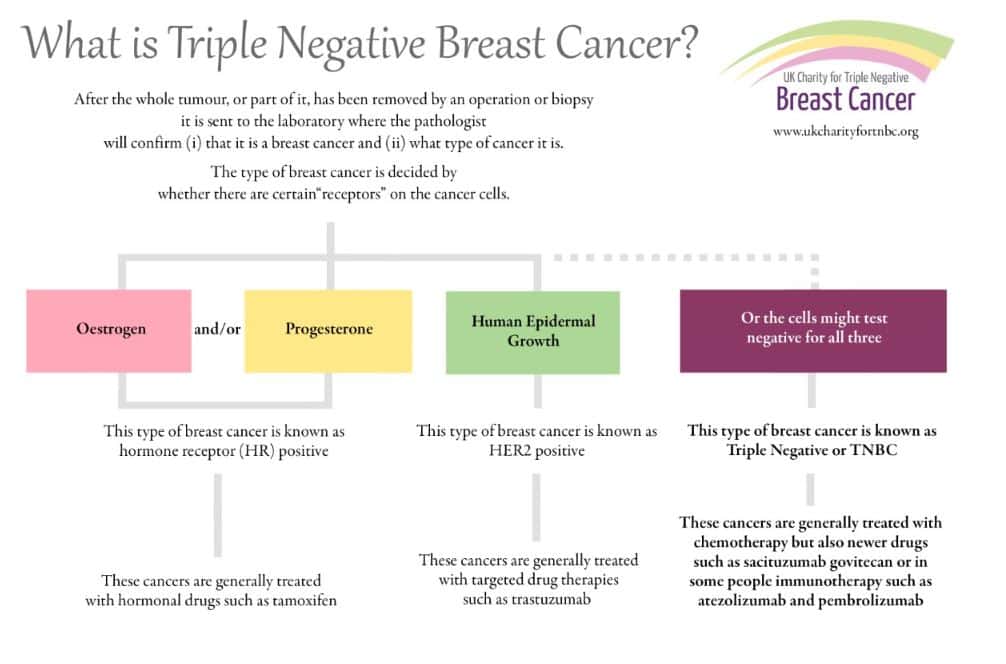Not All Breast Cancers are the Same
18 November 2022 | Robin Woolcock
There have been huge advances in the treatment and resulting patient outcomes for the majority of breast cancers, but this has only recently become true for people with triple negative breast cancer (TNBC) and to a much lesser extent.
Public awareness of this form of breast cancer is understandably limited and this creates an additional burden on health professionals to provide the information that patients need and can easily understand.
‘Why am I different and what does this mean for my treatment and cancer experience?’ is what people with TNBC want to know.
I found from my personal experience following my wife’s diagnosis that this kind of information online or in booklets was usually brief and often buried along with other information about breast cancers that did not apply to TNBC.
This is particularly surprising given that TNBC is not ‘rare’, making up 15-20% of cases, an estimated 40,000 people just in the UK.
Why am I different and what does this mean for my treatment and cancer experience?
The Oncologists, Surgeons and Specialist Breast Cancer Nurses do their best with their understandably limited time – usually just after a consultation when patients are stressed and struggling to understand and take in what they have been told.
It is for these reasons that we set out to provide easy to read and understand, clear but comprehensive information, specifically about TNBC and all in one place. It is all online at www.ukcharityfortnbc.org and this includes a printable pamphlet for those who prefer paper or have no internet access.
The website provides as much or as little information as the patient wants to know, and from diagnosis to whatever stage their disease has reached. The content was overseen by Christopher Twelves, a Professor of Clinical Cancer Pharmacology and Oncology and practicing Oncologist in Leeds. This ensures our content is not only scientifically and medically accurate but uses the right language based on experience of talking to patients over many years.
This enables patients, carers, family and friends to find out what they want to know, at a time when they are relaxed at home, and more receptive to a subject that for many people is extremely demanding, both intellectually and emotionally.
The current lack of targeted treatments for most people with TNBC means they may hear it described as the most ‘aggressive’ form of breast cancer. Nevertheless, provided it has not spread to other parts of the body, patients will usually receive a standard cancer regime of surgery (often with radiotherapy) and chemotherapy; many of these people will go on to be cured.
Importantly, new treatments are emerging to treat people with TNBC, so there are increasing grounds for optimism. One is the immunotherapy drug Atezolizumab (Tecentroq:Roche) and another the targeted chemotherapy drug Sacituzumab govitecan (Trodelvy:Gilead); both are used to treat people with metastatic TNBC, but under different circumstances.
The announcement on the 8th November that Pembrolizumab (Keytruda:MSD) is now available for some patients in the UK with early (or primary), as well as metastatic, TNBC is another major step forward.


 Back to Blog
Back to Blog